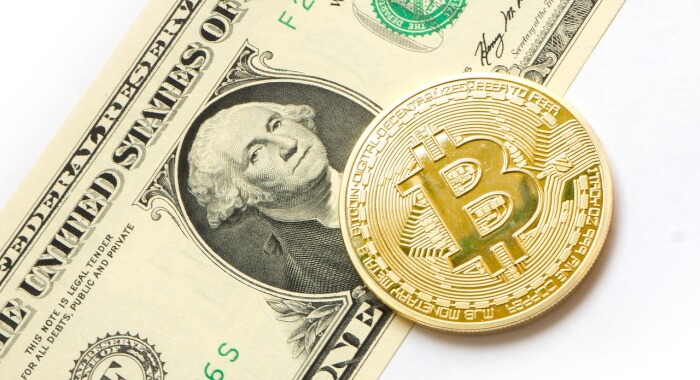Cryptocurrency has shaken the financial world, offering a fresh, innovative way to handle transactions. However, with the rise of digital currencies, concerns about their security have also popped up. So, can cryptocurrency be stolen? Let’s dive into the fascinating world of digital assets and explore how you can keep them safe https://coinplay.com.
Understanding Cryptocurrency Security
The backbone of cryptocurrencies is blockchain technology, which is secure because it’s decentralized and unchangeable. Each transaction gets logged on a public ledger, making it challenging to tamper with. Yet, even with this strong foundation, cryptocurrencies aren’t theft-proof. The main weak spots? How you store and handle your private keys.
A private key is super-important cryptographic information that lets you access your crypto funds. Someone else can control your cryptocurrency if they get their hands on your private key. That’s why keeping your private keys secure is critical.
How Cryptocurrencies Hacked
Hacking Attacks
- Exchanges: Cryptocurrency exchanges are often targeted by hackers, and breaching an exchange can lead to massive thefts. Remember the Mt. Gox hack in 2014? It resulted in losing 850,000 bitcoins, a real eye-opener for the industry.
- Personal Wallets: Your wallets can also be compromised if you don’t take proper precautions. Phishing scams and malware can give hackers unauthorized access to your private keys. Malware can sneak onto your device, capturing keystrokes or screenshots to steal your information.
Social Engineering
- Phishing Scams: Attackers often use phishing to trick people into revealing their private keys or login details. They might send emails that look legit, directing you to a fake website where they will steal your information.
- Impersonation: Some attackers impersonate trusted services or individuals to extract private keys from their targets. That involves fake social media profiles or convincing messages that coax you into sharing sensitive information.
Physical Threats
- Loss or Theft of Devices: If a device with a cryptocurrency wallet gets lost or stolen and isn’t secured, your digital assets can be at risk. For example, if your smartphone or laptop isn’t encrypted, anyone who finds it could access your private keys.
- Insider Threats: Employees or individuals with access to sensitive information can pose a threat. Disgruntled or careless employees might compromise security in organizations that manage large amounts of cryptocurrency.
Protecting Your Cryptocurrency
To keep your digital assets safe, you need to adopt strong security practices:
- Use Hardware Wallets: Store your cryptocurrency in a hardware wallet to keep your private keys offline and out of hackers’ reach. These physical devices are designed to be secure and virus-proof.
- Enable Two-Factor Authentication (2FA): Adding an extra layer of security to your accounts makes unauthorized access much more complicated. 2FA requires something you know (like a password) and something you have (like a physical token).
- Update Software: Keep all your software, including wallets and antivirus programs, up-to-date to guard against the latest threats. Updates often include security patches for vulnerabilities.
- Be Cautious of Phishing Scams: Always verify the legitimacy of websites and emails before entering sensitive information. Look for signs of phishing, such as misspelled domain names or unexpected attachments. Use bookmarks for visited websites.
- Backup Your Wallet: Regular backups of your wallet can help you recover your funds if your device is lost or fails—store backups in multiple locations, like an external hard drive and a secure cloud service.
- Use Strong, Unique Passwords: Ensure each account has strong and unique passwords. Avoid guessable information. Consider using a password manager to generate and store complex passwords.
- Educate Yourself About Security Practices: Stay informed about the latest security practices and threats in the cryptocurrency world. Follow reputable sources and engage in community discussions to stay updated.
The Role of Regulation and Insurance
Governments and regulatory bodies are stepping in to protect cryptocurrency investors. Regulatory measures can ensure that exchanges and wallet providers adhere to strict security standards. Some companies now offer insurance for digital assets, providing an extra layer of protection against theft.
For example, certain jurisdictions require cryptocurrency exchanges to implement Know Your Customer (KYC) and Anti-Money Laundering (AML) protocols. These regulations help prevent illicit activities and enhance overall security.
Insurance for digital assets is also becoming more common. Companies like Lloyd’s of London offer policies that cover losses due to hacking, theft, and other risks. This added layer of protection can provide investors with peace of mind.
Case Studies of Cryptocurrency Theft
Real-world examples of cryptocurrency theft highlight the importance of robust security measures:
- Gox (2014): The Mt. Gox exchange hack resulted in the loss of 850,000 bitcoins, showcasing the vulnerabilities of centralized exchanges.
- Coincheck (2018): The Coincheck hack led to the theft of $530 million worth of NEM tokens, emphasizing the need for robust security measures.
- Binance (2019): Binance suffered a breach that resulted in losing 7,000 bitcoins. The attack used phishing and viruses to bypass security. However, Binance’s Secure Asset Fund for Users (SAFU) covered the losses, showing the importance of insurance and emergency funds.
Conclusion: Balancing Risks and Rewards
While cryptocurrency theft is a real threat, proper security measures can reduce the risk. By staying informed and vigilant, investors can enjoy the benefits of digital currencies.
The principles of security and trust are crucial in other online ventures. For instance, when participating in online casinos, ensuring that the platform is reputable and secure is paramount. In the crypto world, using the right strategies and precautions can lead to rewarding experiences in online gaming.
Online casinos operate in a regulated environment, with reputable platforms adhering to strict security standards and fair play regulations. Players can enjoy a safe and enjoyable gaming experience by choosing an established and licensed online casino.
Moreover, blockchain technology is gaining traction in the online gaming industry. Some online casinos now accept cryptocurrencies, providing an extra layer of security and transparency. Ensures secure, fast, and anonymous transactions enhances the gaming experience.
In conclusion, whether you’re safeguarding your cryptocurrency or enjoying online gaming, security, trust, and vigilance are essential. By following best practices and staying informed, you can navigate both worlds and reap their rewards.
MKTPlace is a leading digital and social media platform for traders and investors. MKTPlace offers premiere resources for trading and investing education, digital resources for personal finance, news about IoT, AI, Blockchain, Business, market analysis and education resources and guides.














